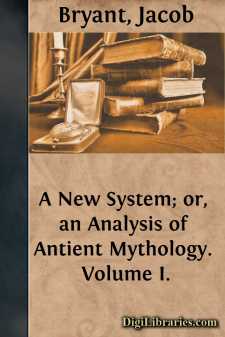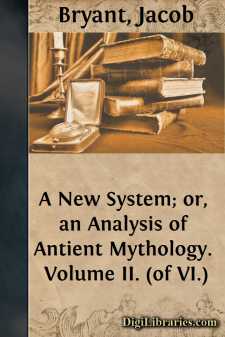Categories
- Antiques & Collectibles 13
- Architecture 36
- Art 48
- Bibles 22
- Biography & Autobiography 813
- Body, Mind & Spirit 142
- Business & Economics 28
- Children's Books 17
- Children's Fiction 14
- Computers 4
- Cooking 94
- Crafts & Hobbies 4
- Drama 346
- Education 46
- Family & Relationships 57
- Fiction 11829
- Games 19
- Gardening 17
- Health & Fitness 34
- History 1377
- House & Home 1
- Humor 147
- Juvenile Fiction 1873
- Juvenile Nonfiction 202
- Language Arts & Disciplines 88
- Law 16
- Literary Collections 686
- Literary Criticism 179
- Mathematics 13
- Medical 41
- Music 40
- Nature 179
- Non-Classifiable 1768
- Performing Arts 7
- Periodicals 1453
- Philosophy 64
- Photography 2
- Poetry 896
- Political Science 203
- Psychology 42
- Reference 154
- Religion 513
- Science 126
- Self-Help 84
- Social Science 81
- Sports & Recreation 34
- Study Aids 3
- Technology & Engineering 59
- Transportation 23
- Travel 463
- True Crime 29
Jacob Bryant
Jacob Bryant (1715–1804) was an English antiquary and mythographer, known for his scholarship in ancient mythology and history. He is most famous for his work "A New System, or, An Analysis of Ancient Mythology" (1774–1776), where he argued that all mythologies and religious beliefs originated from a common source—the biblical narrative. Bryant also wrote "Observations and Inquiries Relating to Various Parts of Ancient History," where he explored ancient civilizations and their connections. His ideas, though influential at the time, were later criticized for their speculative nature and lack of empirical evidence.
Author's Books:
Sort by:
by:
Jacob Bryant
The earliest authentic account we can obtain of the birth of this learned and celebrated writer, is from the Register Book of Eton College, in which he is entered "of Chatham, in the county of Kent, of the age of twelve years, in 1730,"—consequently, born in 1718. Whence a difference has arisen between the dates in this entry, and the inscription on his monument, hereafter given, we are...
more...
by:
Jacob Bryant
PHŒNIX and PHŒNICES. As there has been much uncertainty about the purport and extent of these terms; and they are of great consequence in the course of history; I will endeavour to state their true meaning. Phoinic, or Poinic, was an Egyptian and Canaanitish term of honour; from whence were formed Φοινιξ, Φοινικες, Φοινικοεις of the Greeks, and Phoinic, Poinicus, Poinicius of...
more...



